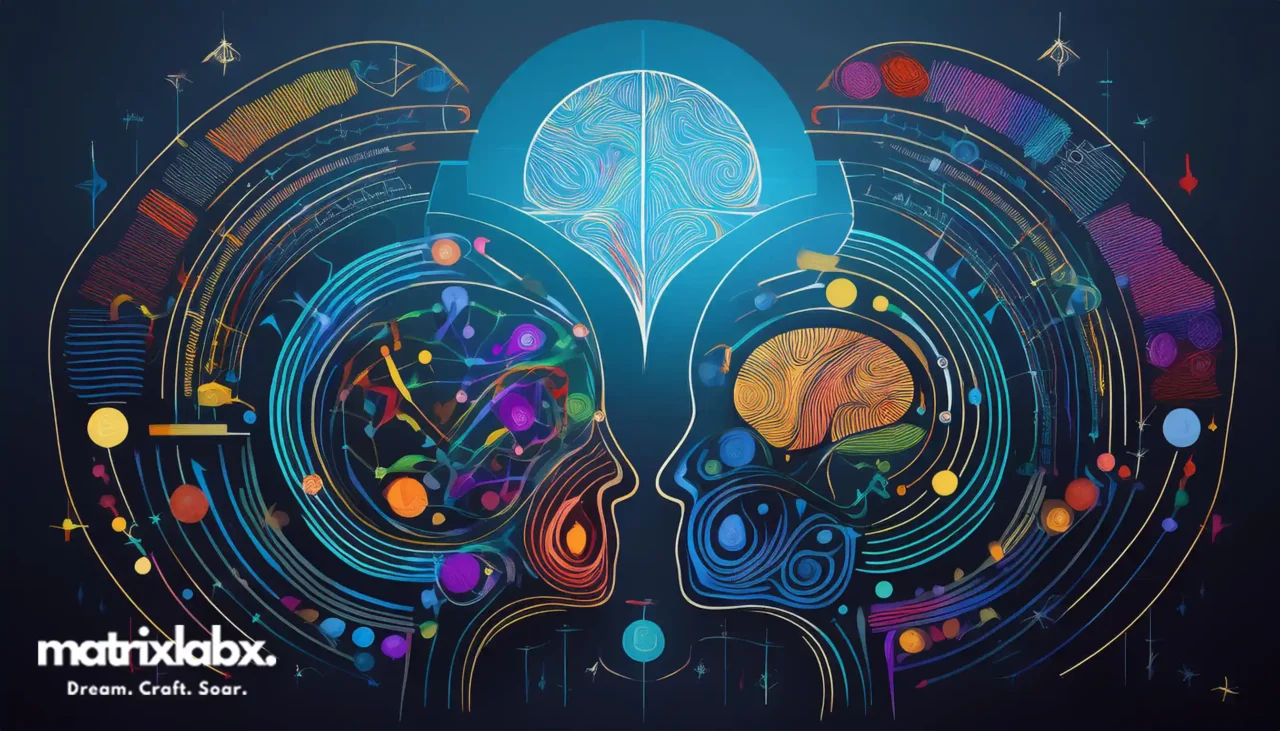Breaking Free from the Overwhelm: Practical Strategies and Tools to Boost Productivity, Enhance Creativity, and Scale Content Production Effectively
Today’s content managers are overwhelmed, juggling tight deadlines, limited budgets, and increasing demands for high-quality, engaging content.
The modern content manager’s dilemma is like being the conductor of a runaway train. The tracks ahead are endless, the train speeds faster by the minute, and the cargo (content demands) keeps piling up.
There’s limited fuel (budget) and insufficient crew (resources) to help keep everything on course. Without a way to slow down and regain control, the train risks derailing—leading to burnout, missed deadlines, and a loss of creativity.
But with the right tools, like AI-powered content generation, it’s as if an advanced control system is installed on the train.
It helps manage the speed, optimize the route, and lighten the load, allowing the conductor to focus on the bigger picture: driving the train smoothly and reaching the destination efficiently and safely without compromising quality.
With few resources and the pressure to produce more, they’re stuck in an endless burnout cycle. Deadlines are missed, creativity is stifled, and the inability to scale content production keeps them from reaching their true potential.
Welcome to our world, where you’re effortlessly producing high-quality, SEO-optimized content in a fraction of the time. Deadlines are no longer a burden; you can focus on strategy and creativity instead of getting bogged down by content creation.
AIContentPad by Matrix Marketing Group transforms your workflow by generating top-tier content quickly, affordably, and at scale. No more late nights or overstretched teams—just fast, effective, and reliable content at your fingertips. After all, we’ve been doing this since 2002.
With Matrix’s AIContentPad, this new world is closer than you think. Even better, the content models are designed by the industry and tuned by the organization’s goals and objectives.
Our AI-driven content generation platform takes the stress out of producing blogs, articles, landing pages, and more. We provide subscription-based models designed to meet your specific content needs. With turnaround times as low as 24 hours, content managers love us.
Ready to experience a more efficient and scalable way to create content?

Introduction: The Content Manager’s Struggle
In today’s fast-paced digital world, content managers are the unsung heroes of every marketing strategy.
However, many are on the verge of burnout with tight deadlines, limited resources, and an ever-growing demand for high-quality, engaging content.
The pressure to constantly produce more content without sacrificing quality has reached a breaking point, and it’s time to address the elephant in the room: the current content creation model is unsustainable.
The Challenges Content Managers Face Today

1. Unrealistic Deadlines
Content managers are often expected to produce large volumes of content within short periods. This leaves little room for thorough research, creative thinking, or high-quality output, resulting in rushed and sometimes subpar work.
2. Limited Budgets and Resources
With limited funds, many content teams are stretched thin. Whether they lack the tools they need, cannot hire additional writers, or outsource work to freelancers, budget constraints make it difficult to keep up with the demand for consistent, engaging content.
3. Creativity Blocked by Pressure
The constant pressure to churn out content can stifle creativity. What was once a creative role has become a production line where there’s no time to explore new ideas, develop fresh angles, or innovate.
4. Inability to Scale Effectively
As brands grow, so do their content needs. However, with scalable processes or systems, content managers can manage growing workloads with the same limited resources. This leads to burnout, decreased quality, and missed opportunities.
Comprehensive Analysis of Trends, Technologies, and Challenges in AI Content Marketing (2024)

The AI content marketing sector is rapidly evolves, offering opportunities and challenges to marketers, content creators, and businesses.
This analysis delves into the latest trends, technologies, challenges, and statistics shaping the industry in 2024. It also includes expert opinions and case studies that provide a roadmap for future development. This data will help inform a series of in-depth blog posts.
I. Latest Trends in AI Content Marketing
1. AI-Generated Content Dominates the Marketing Sphere
With the proliferation of AI tools like GPTo, Watsonx, and Vertex AI, AI-generated content is now essential to many content strategies.
These tools have improved drastically in quality, allowing businesses to generate everything from blog posts to social media content, product descriptions, and email campaigns.
According to HubSpot, 67% of marketers now leverage some form of AI in their content creation process, a figure expected to rise to 75% by the end of 2024.
Key Example: OpenAI’s ChatGPT for Blog Posts
A MarketingProfs case study found that companies using OpenAI’s ChatGPT for blog posts saw a 20-30% reduction in content creation time, allowing them to publish more frequently and increase organic traffic.
2. Hyper-Personalization via AI
One emerging trend is hyper-personalization, where AI tools analyze user data in real time to create customized content experiences.
This level of personalization goes beyond just addressing the recipient by name—it adapts entire pieces of content based on behavior, preferences, and purchase history.
According to Salesforce’s State of Marketing Report, 70% of marketers believe that hyper-personalized content is crucial to their success, and AI is the key enabler of this trend.
Case Study: Netflix’s Content Personalization
Netflix uses AI to personalize the content recommendations for each user. This model has helped the company retain customers and increase user engagement, serving as a template for other companies looking to leverage AI similarly.
3. Voice Search Optimization and Conversational AI
As voice-activated devices like Amazon Alexa and Google Assistant become more ubiquitous, optimizing content for voice search is increasingly important.
Gartner predicts that by 2025, 50% of all searches will be voice-based. This trend pushes marketers to think beyond traditional text-based SEO strategies and focus on conversational content optimized for voice search.
Expert Opinion: Dr. Pete Meyers, Moz
“Voice search is reshaping how we approach SEO. AI tools like conversational models are helping content marketers create dynamic, voice-optimized content that captures more organic traffic.”
4. The Rise of AI in Video Marketing
AI is revolutionizing video content creation with tools that can automate video editing, script generation, and even deepfake technologies that mimic real people. Tools like Synthesia and Lumen5 allow businesses to generate video content quickly and at a fraction of the traditional cost.
Key Statistic: WiserNotify Video Marketing Report
- 87% of businesses now use video as a marketing tool.
- AI-generated videos are estimated to reduce production costs by 60%.
5. Predictive Content Creation
AI’s ability to analyze massive datasets and predict future trends empowers marketers to create content based on predictive insights.
This allows businesses to proactively develop content that addresses future customer needs or market shifts.
Case Study: IBM Watson’s Predictive Marketing
Using Watson’s predictive AI, Coca-Cola predicted consumer behavior trends and adjusted its content strategy, leading to a 12% increase in engagement with its digital marketing campaigns.
II. Key Technologies Driving AI Content Marketing

1. Natural Language Processing (NLP)
Natural Language Processing (NLP) is the backbone of most AI content tools. NLP allows AI to understand, generate, and interpret human language. The advent of GPT-4 and similar models has greatly improved the quality of machine-generated text, with AI now producing coherent, relevant, and engaging content.
Expert Opinion: Dr. Fei-Fei Li, Stanford AI Lab
“NLP is the cornerstone of AI content creation. The better the AI understands language, the more indistinguishable it will be from human-generated content.”
2. AI-Powered Analytics
AI-driven analytics are now indispensable for marketers looking to optimize content strategies. AI tools can analyze data faster than any human team, providing insights into which pieces of content perform best when to publish, and how to structure future campaigns.
Key Statistic: McKinsey
- Companies using AI analytics report twice as much ROI from content marketing as those not using AI.
3. Generative AI and Large Language Models
Generative AI, like GPT-4, has reshaped content production. Large language models can write articles, develop ad copy, and even draft legal documents. These tools are becoming more accessible, with businesses of all sizes now able to integrate AI into their marketing workflows.
Key Statistic: OpenAI
GPT-4 can generate content 20x faster than a human writer with nearly 80% of the perceived quality. This level of productivity and speed is pushing content marketing to new heights.

III. Challenges in AI Content Marketing
1. Content Authenticity and Plagiarism Concerns
One of the most prominent challenges is maintaining authenticity. As AI-generated content becomes more prevalent, there’s growing concern over plagiarism, originality, and the ethical implications of mass AI-generated content.
According to a study by the Content Marketing Institute, 41% of marketers are concerned about the overuse of AI, leading to a lack of unique perspectives and ideas.
2. Lack of Human Touch in Content
While AI-generated content is faster and more efficient, it often needs more emotional depth and nuance from human creativity. Brands risk alienating their audience if content feels too robotic or disconnected from their core values.
Expert Opinion: Joe Pulizzi, Founder of Content Marketing Institute
“AI can’t replace the human touch, especially in storytelling. Content that moves people is deeply emotional, and while AI can assist, it cannot fully replicate that human connection.”
3. Data Privacy and Ethical Use of AI
AI tools rely heavily on data to function effectively. However, this raises concerns about data privacy and the ethical use of consumer information.
In a world where data breaches are common, businesses must be transparent and careful about using AI to avoid legal and reputational risks.
Key Statistic: Accenture
- 68% of consumers are worried about how companies use their data, and AI-driven marketing strategies must address these concerns to build trust.
IV. Future Outlook: What to Expect in AI Content Marketing
- Increased Collaboration Between AI and Human Writers As AI advances, we’ll see a rise in hybrid content creation processes where humans and AI collaborate. Writers will focus more on creative imagination and strategy, while AI handles data-heavy tasks like content optimization, keyword placement, and SEO performance.
- Integrating AI with Augmented Reality (AR) and Virtual Reality (VR) Content marketing will move beyond the screen, with AI-driven AR and VR experiences becoming part of the marketing mix. Companies like IKEA and Nike are already exploring this trend, using AR to create interactive and immersive content experiences.
- Real-Time Content Generation: Future AI tools will likely generate real-time content, responding instantly to market shifts, customer behaviors, and breaking news. This will make brands more agile and capable of engaging with audiences.
This analysis serves as a foundation for a series of blog posts that can explore these trends, technologies, and challenges in greater detail. Each topic provides valuable insights into the future of AI content marketing, helping businesses stay ahead of the curve.
The Path Forward: Practical Solutions to Alleviate the Burden
1. Prioritization and Focus on High-impact Content
Not all content is created equal. Content managers should focus on high-impact pieces that drive the most engagement and ROI.
This means creating fewer but more strategic pieces of content rather than churning out content for volume.
2. Implementing an Efficient Content Calendar
Planning with a detailed content calendar can help manage deadlines more effectively.
Mapping out content production in advance, setting realistic timelines, and assigning resources where needed most will help alleviate last-minute stress and ensure quality output.
3. Leveraging Data to Optimize Content Strategy
Data analytics tools are invaluable for content managers.
By tracking engagement metrics, SEO performance, and user behavior, content managers can make data-driven decisions to optimize their strategy. This allows them to focus on what works best and cut out the rest.
4. Delegating and Outsourcing Wisely
While limited budgets may prevent hiring full-time staff, outsourcing specific tasks to freelancers or agencies can provide relief.
Consider outsourcing repetitive or lower-priority content tasks, freeing up time for your in-house team to focus on high-value work.
Scaling Content Production with Technology
1. Automation Tools for Content Creation and Distribution
Content managers can reduce their workload by embracing automation. Tools that automate parts of the content creation process, like email campaigns, social media posts, and analytics reports, allow teams to focus on more strategic initiatives.
2. The Power of AI in Content Generation
AI-powered tools like Matrix Marketing Group’s AIContentPad can revolutionize content production. These tools can generate high-quality blog posts, articles, and other forms of content at scale, allowing content managers to meet deadlines without compromising quality.
With AIContentPad, content managers can reclaim their time, reduce burnout, and focus on creative strategy rather than the tedious content creation process.
3. Streamlining Content Approval Processes
Lengthy approval processes can often slow down content production.
Implementing more streamlined workflows or collaborative platforms where team members can review, comment, and approve content in real time can significantly speed up delivery times.
How AIContentPad is Transforming Content Management
AIContentPad by Matrix Marketing Group is designed specifically for content managers who need to scale efficiently without breaking the bank. Here’s how it helps:
- Faster Content Production: Generate high-quality content in minutes, not days.
- Cost-Effective: Affordable subscription models that fit any budget.
- Optimized for SEO: Content is automatically optimized for search engines, helping you rank higher without additional effort.
- Focus on Strategy: With content creation handled by AI, managers can focus on refining content strategy and ensuring that every piece serves a purpose.
Avoiding Burnout: Self-Care for Content Managers
While tools and strategies can ease the workload, it’s essential to remember that personal well-being is just as important.
Content managers should prioritize self-care to maintain creativity and productivity. Setting boundaries, taking breaks, and managing time effectively is key to avoiding burnout in this high-pressure role.
Content Creation Objections? Let’s Talk Solutions
Objection 1: “I don’t have the time.”
- Solution: Speed is our superpower. AI generates content in minutes, not hours. Reclaim your time for strategy, creativity, and tasks that truly need your human touch. Imagine responding to market trends instantly without sacrificing quality.
Objection 2: “It’s too expensive.”
- Solution: We’re built for cost-effectiveness. Our AI automates the content creation process, eliminating the need for large teams of writers. That translates to savings for you without compromising on quality. High-quality content shouldn’t break the bank.
Objection 3: “This won’t work for my specific needs.”
- Solution: We’re scalable and adaptable. From blog posts to product descriptions, our services scale with your needs. Our AI is trained on a massive dataset, ensuring it understands your industry and can create content that resonates with your audience.
Objection 4: “I don’t believe in AI-generated content.”
- Solution: Our AI delivers consistency and insights. AI ensures a consistent brand voice, eliminating the risk of errors or inconsistencies. Plus, it analyzes content performance, optimizing future content based on what works. It’s about enhancing your human creativity with data-driven intelligence.
Objection 5: “I don’t need it.”
- Solution: Think of us as your competitive edge. In today’s fast-paced digital world, consistent, high-quality content is essential. We help you stay ahead of the curve, freeing up your time and resources to focus on what you do best – growing your business.
Ready to unlock the power of AI content generation? Let’s discuss how we can tailor our services to your needs.
Conclusion: The Future of Content Management
The future of content management lies in balancing creativity with scalability. With the right tools, strategies, and mindset, content managers can overcome the challenges of tight deadlines, limited budgets, and growing demands.
AI-powered tools like AIContentPad offer a way forward, enabling content managers to meet the increasing demands of their role and thrive in it.
The content creation model is changing—don’t get left behind. Embrace the future of content management with AIContentPad and unlock a new level of efficiency, creativity, and success.
AI is transforming content marketing, making it faster, more scalable, and data-driven. While leveraging AI has significant advantages, marketers must also be aware of the challenges, including maintaining authenticity, handling data ethically, and ensuring that human creativity remains central to their strategy.
By combining the best of both worlds—human insight and AI-powered efficiency—marketers can unlock unprecedented opportunities in 2024 and beyond.
Join the growing list of content managers using AIContentPad and unleash your team’s full creative potential. Start your journey to better content today—schedule a demo and see the future of content generation in action.

